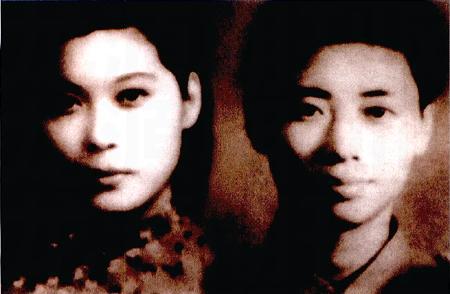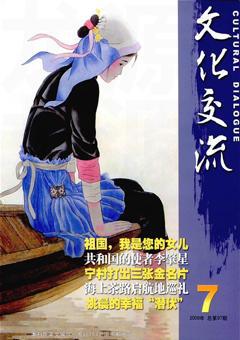An Extraordinary Writer and His Extraordinary Trilogy
By Zu Dingyuan

“War and Humans” is a trilogy authored by Wang Huo (b 1924), a Chinese writer. The trilogy won Mao Dun Prize in Literature in 1997, a top national literary honor that happens every four years.
The trilogy depicts the destiny of Chinese from all walks of life against the backdrop of World War Two. It highlights how the nation survived the Japanese invasion of brutality, inhumanity, atrocity and arrogance. Critics observe that Wangs epic exemplifies the finest art of Chinese storytelling, explores unique human vicissitudes against the evils of war, and pursues the nobility of human nature. It is indeed an epic of Chinese resistance, humanism and patriotism.
Ten Years
When Wang embarked upon the task of writing the trilogy, his health was extremely poor. Fighting the physical pains, he struggled to write with only one eye. Worried about his health and his writing, his friends were not particularly optimistic about the ambition. Many writers at that time took a speculative attitude toward a lot of things. For some, literature, art, and many trendy literary styles were all utilitarian tools for fame and success. Seemingly an anachronistic novelist, Wang Huo took his trilogy seriously. His friends feared that he would probably have to drop it because of his poor health and that the literary quality of the novels might be negatively affected by his martyr attitude. The fears vanished when the novels came out and the friends were amazed. Deng Youmei, a preeminent storywriter and friend, comments in a long review published in “Literary Gazette” that it was a miracle that Wang survived the ten-year writing. It could have been a tremendous regret for the literary history and the general public had he not determined to write the trilogy and had he not exerted the utmost strength in writing it.
His Wife
Behind the success of Wang Huo is his wife Ling Qifeng. Wang is grateful to his wife for the trilogy, among other things. The first novel has a picture of him and Ling. The Wang family and the Ling family were friends for decades. Wang Huo and Ling Qifeng met in Chongqing when both were 18 years old. They fell in love. Ling Qifengs father was a KMT veteran and the Ling family moved to Taiwan in 1948. In the early 1950s, Wang Huo worked for Shanghai Federation of Trade Unions. For fear that they would not be able to get married, many friends advised Wang to drop the relationship across the straits. But Wang persisted. Wang Huo and Ling Qifeng kept writing each other. In 1953, Ling came to the mainland via Hong Kong. They got married in Shanghai after a ten-year romance.
In 1981, Wang Huo wrote a film script based on the romance. It was published. But unfortunately, it was never filmed.
Mao Dun Literature Prize
The trilogy won the top prize in 1997. It takes jurors three years to read candidate novels, make a shortlist, and then decide upon a final list. Three other novelists shared the four-year prestige in 1997. □

